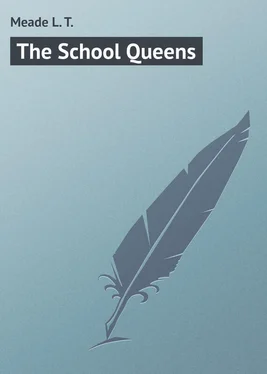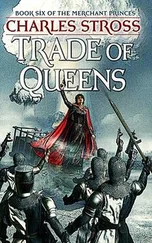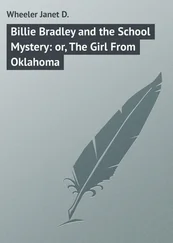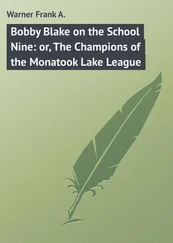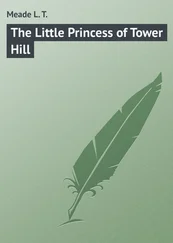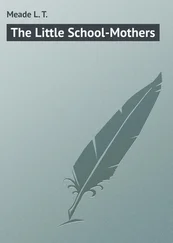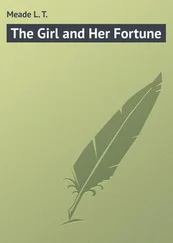L. Meade - The School Queens
Здесь есть возможность читать онлайн «L. Meade - The School Queens» — ознакомительный отрывок электронной книги совершенно бесплатно, а после прочтения отрывка купить полную версию. В некоторых случаях можно слушать аудио, скачать через торрент в формате fb2 и присутствует краткое содержание. Жанр: foreign_children, foreign_prose, foreign_language, на английском языке. Описание произведения, (предисловие) а так же отзывы посетителей доступны на портале библиотеки ЛибКат.
- Название:The School Queens
- Автор:
- Жанр:
- Год:неизвестен
- ISBN:нет данных
- Рейтинг книги:3 / 5. Голосов: 1
-
Избранное:Добавить в избранное
- Отзывы:
-
Ваша оценка:
- 60
- 1
- 2
- 3
- 4
- 5
The School Queens: краткое содержание, описание и аннотация
Предлагаем к чтению аннотацию, описание, краткое содержание или предисловие (зависит от того, что написал сам автор книги «The School Queens»). Если вы не нашли необходимую информацию о книге — напишите в комментариях, мы постараемся отыскать её.
The School Queens — читать онлайн ознакомительный отрывок
Ниже представлен текст книги, разбитый по страницам. Система сохранения места последней прочитанной страницы, позволяет с удобством читать онлайн бесплатно книгу «The School Queens», без необходимости каждый раз заново искать на чём Вы остановились. Поставьте закладку, и сможете в любой момент перейти на страницу, на которой закончили чтение.
Интервал:
Закладка:
A turn in the avenue now brought the old manor-house into view. Some friends of Mrs. Cardew’s had arrived, but there were no other young people to be seen. Cicely and Merry were standing talking to a lady of middle age who had come to pay an afternoon call, when Cicely found herself changing color and glancing eagerly at Merry.
“Oh, will you excuse me?” she said in her pretty, refined voice. “Our special friends the Tristrams, the rector’s daughters, and a friend of theirs, a Miss Howland, are coming up the avenue.”
“Certainly, my dear,” said Lady Lysle; and Cicely and Merry were off down the avenue like arrows from the bow to meet their friends.
Lady Lysle watched the two girls, and then turned to speak to Mrs. Cardew.
“What name was that I heard Cicely say?” was her remark. “Of course I know the Tristrams, but who was the girl who was with them?”
“A special friend of theirs, a Miss Howland. She has been their school companion abroad. She is staying with them at the rectory. Why, what is the matter, Lady Lysle? Do you know anything about her?”
“I don’t know her,” said Lady Lysle, “but I know a little bit about her mother. I should not have supposed the Tristram girls and Miss Howland were in the same set.”
“Why, what is wrong?” said Mrs. Cardew, who was exceedingly particular as regarded the people whom her daughters knew.
“Oh, nothing, nothing,” said Lady Lysle. “I happen not particularly to like Mrs. Howland; but doubtless I am prejudiced.”
She turned to talk to a neighbor, and by this time the five girls had met. There was an eager interchange of greetings, and then Maggie found herself walking up the avenue by Merry’s side, while Cicely found a place between the two Tristram girls.
“I am so glad you’ve come!” said Merry in her gentle, polite voice.
“It is kind of you to ask me,” replied Maggie. “Do you know,” she added, turning and fixing her curious eyes on her companion’s face, “that I am one of those poor girls who have never seen a beautiful house like yours before.”
“I am so glad you like our house,” said Merry; “but you haven’t seen it yet.”
“I am looking at it now. So this is what I am accustomed to hear spoken of as one of the ‘Homes of England’?”
“It certainly is a home,” said Merry, “and an old one, too. Parts of the Manor have been centuries in existence, but some parts, of course, are comparatively new.”
“Will you take me all over it, Miss Cardew?” asked Maggie.
“Indeed, I shall be delighted; but you must come another day for that, for we want to make up some sets of tennis without any delay. We have all our afternoon planned out. There are three or four young people who may arrive any moment, so that we shall be able to make two good sets.”
“How wonderful it all is!” said Maggie, who kept on looking at the house with ever-increasing admiration, and did not seem particularly keen about tennis.
“Don’t you like tennis, Miss – Miss Howland?” said Merry.
“Oh yes,” replied Maggie after a pause; “but then I think,” she added, after yet another pause, “that I like every nice thing in all the world.”
“How delightful that must be!” said Merry, becoming more and more attracted by Maggie each moment. “And you know a lot, too, don’t you? For you have seen so much of the world.”
“I know very little,” replied Maggie; “and as to having seen the world, that is to come. I am quite young, you know – only just sixteen.”
“But Isabel and Molly told me that you knew more than any other girl of their acquaintance.”
Maggie gave a cheerful laugh, and said, “You mustn’t mind what they say, poor darlings! The fact is, they’re fond of me, and they magnify my knowledge; but in reality it doesn’t exist. Only, I must tell you, Miss Cardew, I mean to see everything, and to know everything. I mean to have a glorious future.”
The enthusiasm in the charming voice was also seen, to shine through those queer, narrow eyes. Merry felt her heart beat. “I am going to tell you something in return,” she said, speaking, for a wonder, without diffidence, for she was naturally very shy and retiring. “I wish with all my heart that I could live a glorious life such as you describe.”
“And surely you can?” said Maggie.
“No, I must be satisfied with a very quiet life. But we won’t talk of it now. I am really very happy. I should consider myself a most wicked, discontented girl were I anything else. And, please, may I take you to see mother?”
Merry brought up her new friend to introduce her to Mrs. Cardew, who for the first moment, remembering what Lady Lysle had said, was a trifle stiff to Maggie Howland, but two minutes afterward was chatting to her in a pleasant and very friendly manner. She even went the length of personally introducing Maggie to Lady Lysle, excusing herself for the act by saying that Lady Lysle knew her mother.
Maggie also succeeded in charming Lady Lysle, who said to Mrs. Cardew afterward, “I am glad you have introduced the girl to me. She is not in the least like her commonplace, affected mother. She seems a very good sort, and I like plain girls.”
“But is she plain?” said Mrs. Cardew in some astonishment. “Do you know, I never noticed it.”
Lady Lysle laughed. “You never noticed how remarkably plain that girl is, my dear friend?” she said.
“To be frank with you,” said Mrs. Cardew, “I didn’t think of her face at all. She has a pretty manner and a nice, sensible, agreeable way of talking. I do not think my girls can suffer injury from her.”
“They seem to like her, at any rate,” said Lady Lysle, looking significantly as she spoke at the distant part of the grounds, where Maggie, with Cicely at one side of her and Merry at the other, was talking eagerly. “Oh yes, she seems a nice child,” continued the great lady, “and it would be unfair to judge a girl because her mother is not to one’s taste.”
“But is there anything really objectionable in the mother?” asked Mrs. Cardew.
“Nothing whatsoever, except that she is pushing, vulgar, and shallow. I am under the impression that the Howlands are exceedingly poor. Of course they are not to be blamed for that, but how the mother can manage to send the girl to expensive schools puzzles me.”
“Ah, well,” said Mrs. Gardew in her gentle voice, “the child is evidently very different from her mother, and I must respect the mother for doing her best to get her girl well educated.”
“Your girls are not going to school, are they, Sylvia?” asked Lady Lysle.
“Mine? Of course not. Their father wouldn’t hear of it.”
“On the whole, I think he is right,” said Lady Lysle, “though there are advantages in schools. Now, that school at Kensington, Aylmer House, which my dear friend Mrs. Ward conducts with such skill and marvelous dexterity, is a place where any girl might receive advantages.”
“Is it possible,” said Mrs. Cardew, “that Mrs. Ward is your friend?”
“My very great friend, dear. I have known her all my life. Aylmer House is particularly select. My niece Aneta is at the school, and her mother is charmed with it.”
“But that is very strange,” said Mrs. Gardew after a pause. “You must talk to-night to our rector when he comes. Oh yes, of course you’ll stay to supper.”
“I cannot, I regret to say.”
“Well, then, if you won’t, there’s no use in pressing you. But I have something curious to say. The rector’s two little girls are going to Aylmer House in September, and that little Miss Howland whom I just introduced to you is also one of the girls under Mrs. Ward’s care.”
“Then she will do well,” said Lady Lysle alter a pause, during which her face looked very thoughtful.
Читать дальшеИнтервал:
Закладка:
Похожие книги на «The School Queens»
Представляем Вашему вниманию похожие книги на «The School Queens» списком для выбора. Мы отобрали схожую по названию и смыслу литературу в надежде предоставить читателям больше вариантов отыскать новые, интересные, ещё непрочитанные произведения.
Обсуждение, отзывы о книге «The School Queens» и просто собственные мнения читателей. Оставьте ваши комментарии, напишите, что Вы думаете о произведении, его смысле или главных героях. Укажите что конкретно понравилось, а что нет, и почему Вы так считаете.
